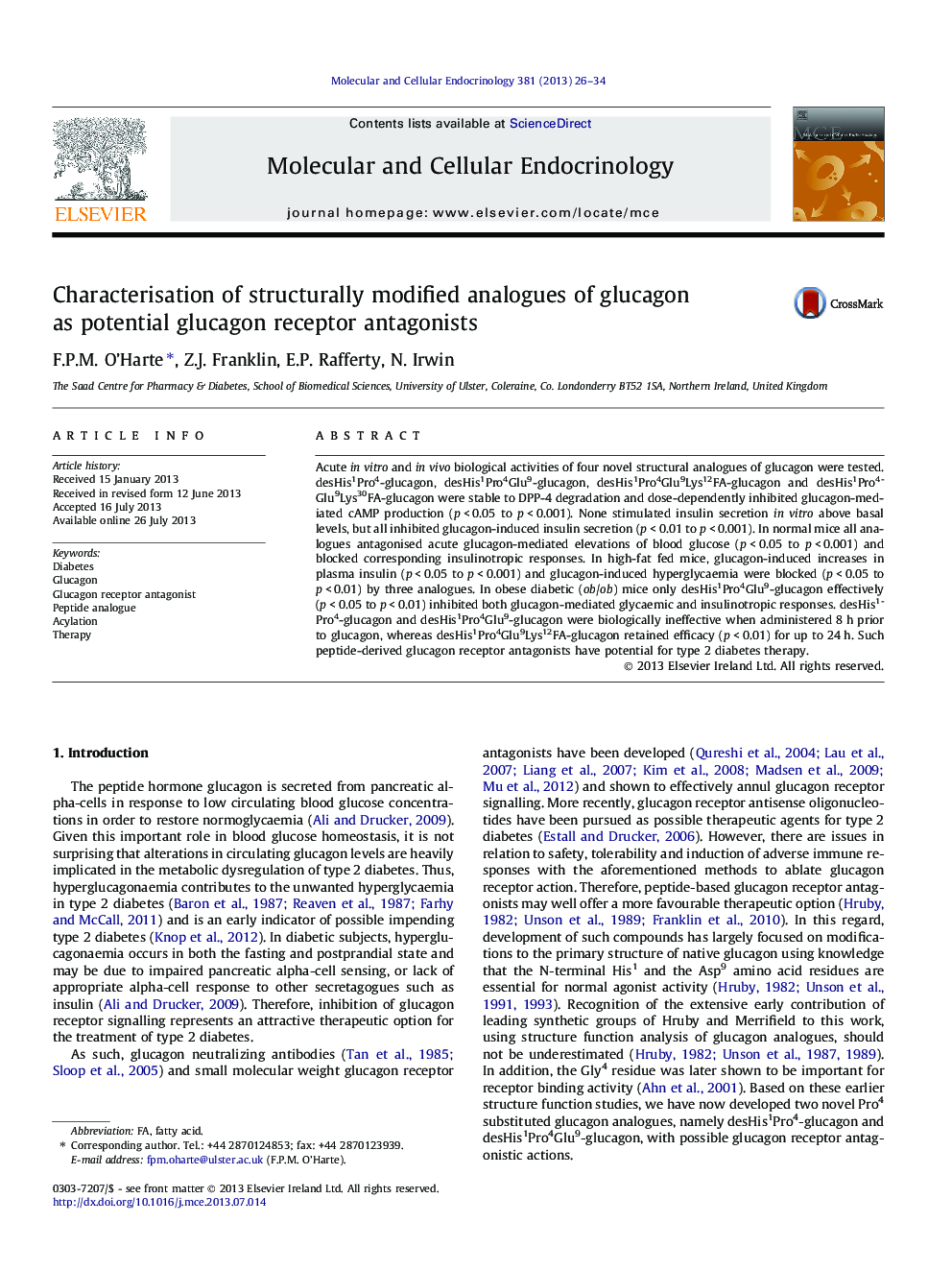| Article ID | Journal | Published Year | Pages | File Type |
|---|---|---|---|---|
| 8477266 | Molecular and Cellular Endocrinology | 2013 | 9 Pages |
Abstract
Acute in vitro and in vivo biological activities of four novel structural analogues of glucagon were tested. desHis1Pro4-glucagon, desHis1Pro4Glu9-glucagon, desHis1Pro4Glu9Lys12FA-glucagon and desHis1Pro4Glu9Lys30FA-glucagon were stable to DPP-4 degradation and dose-dependently inhibited glucagon-mediated cAMP production (p < 0.05 to p < 0.001). None stimulated insulin secretion in vitro above basal levels, but all inhibited glucagon-induced insulin secretion (p < 0.01 to p < 0.001). In normal mice all analogues antagonised acute glucagon-mediated elevations of blood glucose (p < 0.05 to p < 0.001) and blocked corresponding insulinotropic responses. In high-fat fed mice, glucagon-induced increases in plasma insulin (p < 0.05 to p < 0.001) and glucagon-induced hyperglycaemia were blocked (p < 0.05 to p < 0.01) by three analogues. In obese diabetic (ob/ob) mice only desHis1Pro4Glu9-glucagon effectively (p < 0.05 to p < 0.01) inhibited both glucagon-mediated glycaemic and insulinotropic responses. desHis1Pro4-glucagon and desHis1Pro4Glu9-glucagon were biologically ineffective when administered 8 h prior to glucagon, whereas desHis1Pro4Glu9Lys12FA-glucagon retained efficacy (p < 0.01) for up to 24 h. Such peptide-derived glucagon receptor antagonists have potential for type 2 diabetes therapy.
Related Topics
Life Sciences
Biochemistry, Genetics and Molecular Biology
Cell Biology
Authors
F.P.M. O'Harte, Z.J. Franklin, E.P. Rafferty, N. Irwin,
